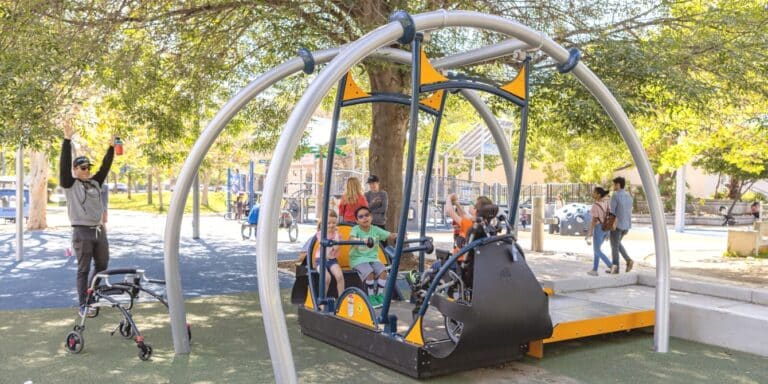
How Inclusive Play Furniture Enhances Social Skills in Children?
It has how important inclusive play furniture is in the business services, especially those related to education and child development. Inclusive play equipment, including kids furniture play, is a term used to indicate the design and manufacture of playground equipment that can be enjoyed by all children, regardless of their physical or cognitive ability.
Encouraging Cross-Group Interactions
Interacting with other children. Serve media is to facilitate interaction among diverse groups and accommodate different abilities by sharing inclusive play furniture. Playing together teaches kids about diversity and empathy, which are invaluable life lessons. It helps children learn and accept differences, which sets the stage for respectful, inclusive interactions in social situations.
Encouraging Cooperative Play
Most accessible playground structures are designed to promote social play rather than solitary activity. Playground equipment that has large play panels, group swings, or multi-user seesaws requires the children to cooperate in order for them all to achieve their goal. Teamwork, communication Skills and problem-solving are the kinds of games encouraged. Negotiating roles, sharing spoils, and bolstering one another are all essential skills in effective collaboration—be it social or academic.

Improvement in Communication
Inclusive play furniture will often incorporate things to help make sure the little ones can still communicate. For instance, touch-sensitive interactive panels tend to make children verbalize how they are acting and feeling for the benefit of those around them. When children read books or engage in the illustrative activities, they are learning words and corresponding to themselves meaningfully.
Confidence and Self-Esteem Battles
An inclusive play environment is welcoming and non-judgmental so you won’t be left out or fail. This practice of inclusion boosts the self-image and confidence of children. When children are accepted and valued, they respond to that by participating better in social situations. They mean to them social experiences that strengthen their identity as individuals and motivate themselves to become interested in interpersonal communication.
Teaching Conflict Resolution
No matter where you are, social conflict is always a given. Play furniture for inclusive play leads children to a zone, free from dilemma, where they understand how friction can be minute anytime. Through guided play, children learn how to resolve conflicts peacefully and collaboratively.
Increased Emotional Intelligence
Play furniture that is inclusive helps children to grow emotionally intelligent, learn the many emotions they have and experience actions based on those. Role-play or cooperative problem-solving activities cause kids to identify their own emotions and those of others. Such awareness helps kids get in touch with empathy, self-regulation and social skills—all of which are key to the foundational understanding of emotional intelligence.
For business services, specifically educational and developmental product-focused businesses, having an effective sense of the power of inclusive kids furniture play is essential. This furniture contributes to the development of physical as well as cognitive skills in children and also teaches them how to be social at an early age. On the flip side, businesses that are offering or investing in inclusive play solutions will not only help build better responsive social skills in children but also create a more welcoming and understanding community.


